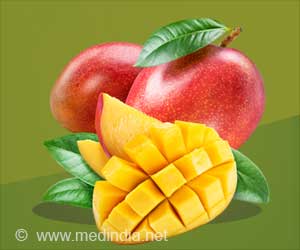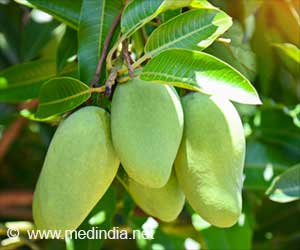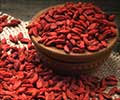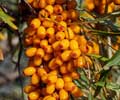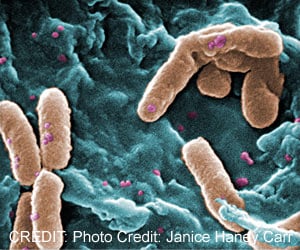Are mango leaves good for health? Yes! Rich in antioxidants, mango leaves may help with diabetes, fat metabolism, and even skin health.
- Mango leaves are rich in antioxidants and plant compounds that promote overall health
- The leaf extract has potential benefits for managing diabetes, reducing fat, and improving skin health
- Mango leaf tea is a natural remedy used for centuries in traditional medicine
Mini-Review- A mini-review of therapeutic potential of Mangifera indica L
Go to source). Although the stem, bark, leaves, roots, and fruit are all utilized in traditional medicine, the leaves are said to be particularly effective in treating diabetes and other health issues.
Mango leaves have been used in Ayurvedic and Chinese medicine for thousands of years to treat everything from ulcers to diabetes! #mangoleaves #healthbenefits #medindia’
Top 8 Benefits of Mango Leaves
Here are eight advantages and uses of mango leaves, supported by science:Rich in plant chemicals
Mango leaves contain a variety of useful plant components, including polyphenols and terpenoids. Terpenoids are essential for good vision and immunological function. They also act as antioxidants, protecting your cells from dangerous substances known as free radicals (2✔ ✔Trusted Source
Terpenoids as plant antioxidants
Go to source).
Meanwhile, polyphenols possess antioxidant and anti-inflammatory properties. According to some research, they boost gut bacteria and can help treat or prevent obesity, diabetes, heart disease, and cancer (3✔ ✔Trusted Source
The effects of polyphenols and other bioactives on human health
Go to source).
Mangiferin, a polyphenol found in many plants but particularly abundant in mango and mango leaves, has been linked to a variety of health advantages. It has been studied as an antimicrobial agent as a potential treatment for cancers, diabetes, heart disease, and improper fat digestion (4✔ ✔Trusted Source
Mangiferin: An effective therapeutic agent against several disorders (Review)
Go to source).
Still, more human research is needed.
Anti-inflammatory properties
Many of the possible advantages of mango leaves stem from mangiferin's anti-inflammatory characteristics (5✔ ✔Trusted Source
Mangiferin: A xanthonoid with multipotent anti-inflammatory potential
Go to source). While inflammation is a normal immune response, chronic inflammation can put you at risk for a variety of disorders.
According to animal research, mango leaves' anti-inflammatory effects may even protect your brain from Alzheimer's and Parkinson's disease. In one study, rats were administered mango leaf extract at 2.3 mg per pound of body weight (5 mg per kg) to help offset experimentally produced oxidative and inflammatory indicators in the brain (6✔ ✔Trusted Source
Neuroprotective efficiency of Mangifera indica leaves extract on cadmium-induced cortical damage in rats
Go to source).
Nevertheless, human research is needed.
May prevent fat growth
Mango leaf extract may help with obesity, diabetes, and metabolic syndrome by interfering with fat metabolism (7✔ ✔Trusted Source
Regulation of lipid and glucose homeostasis by mango tree leaf extract is mediated by AMPK and PI3K/AKT signaling pathways
Go to source). Several animal investigations have shown that mango leaf extract reduces fat formation in tissue cells. Another study in mice found that cells treated with mango leaf extract had reduced levels of fat deposits and increased levels of adiponectin (8✔ ✔Trusted Source
Isolation, structural elucidation, MS profiling, and evaluation of triglyceride accumulation inhibitory effects of benzophenone C-glucosides from leaves of Mangifera indica L
Go to source).
Adiponectin is a cell signaling protein involved in fat metabolism and sugar regulation in the body. Higher levels may help prevent obesity and obesity-related chronic diseases. In a study of obese rats, those administered mango leaf tea in addition to a high fat diet accumulated less belly fat than those on the high fat diet alone (9✔ ✔Trusted Source
Anti-obesity effects of tea from Mangifera indica L. leaves of the Ubá variety in high-fat diet-induced obese rats
Go to source).
In a 12-week trial of 97 persons with excess weight, those given 150 mg of mangiferin daily had lower blood fat levels and performed much better on an insulin resistance index than those given a placebo (10✔ ✔Trusted Source
Mangiferin supplementation improves serum lipid profiles in overweight patients with hyperlipidemia: a double-blind randomized controlled trial
Go to source). Lower insulin resistance indicates better diabetes treatment.
May help combat diabetes
Mango leaf may aid with diabetes management due to its effects on fat metabolism. High triglyceride levels are frequently connected with insulin resistance and type 2 diabetes.
One study administered mango leaf extract to mice. After two weeks, individuals had dramatically decreased triglyceride and blood sugar levels. A study on rats indicated that giving 45 mg per pound of body weight (100 mg per kg) of mango leaf extract reduced hyperlipidemia, a condition characterized by abnormally high levels of triglycerides and cholesterol (11✔ ✔Trusted Source
In Vitro Bioaccessibility and Effect of Mangifera indica (Ataulfo) Leaf Extract on Induced Dyslipidemia
Go to source).
May have antitumor characteristics
Multiple studies show that mangiferin in mango leaves may have anticancer properties because it combats oxidative stress and inflammation. Test-tube studies indicate that it has specific actions against leukemia, lung, brain, breast, cervix, and prostate cancers (12✔ ✔Trusted Source
The potential role of mangiferin in cancer treatment through its immunomodulatory, anti-angiogenic, apoptopic, and gene regulatory effects
Go to source).
Furthermore, mango bark has high anticancer properties due to its lignans, another form of polyphenol (13✔ ✔Trusted Source
Two new lignans from the stem bark of Magnolia obovata and their cytotoxic activity
Go to source).
May treat stomach ulcers
Mango leaves and other components of the plant have long been used to treat stomach ulcers and other digestive issues. A mouse study discovered that orally feeding mango leaf extract at 113-454 mg per pound (250-1,000 mg per kg) of body weight reduced the amount of stomach ulcers (14✔ ✔Trusted Source
Polyphenols with Antiulcerogenic Action from Aqueous Decoction of Mango Leaves (Mangifera indica L.)
Go to source).
May promote healthy skin
Mango leaf extract's antioxidant concentration may help to prevent indications of skin aging. In a mouse study, mango extract administered orally at 45 mg per pound (100 mg per kg) of body weight boosted collagen formation and greatly reduced the duration of skin wrinkles (15✔ ✔Trusted Source
Protective effect of mango (Mangifera indica L.) against UVB-induced skin aging in hairless mice
Go to source). Keep in mind that this was a normal mango extract, not one designed specifically for mango leaves.
Meanwhile, a test tube study found that mango leaf extract may have antibacterial properties against Staphylococcus aureus, a bacterium that causes staph infections (16✔ ✔Trusted Source
Development of Mangifera indica leaf extract incorporated carbopol hydrogel and its antibacterial efficacy against Staphylococcus aureus
Go to source). Mangiferin has also being explored for the treatment of psoriasis, a skin ailment characterized by itchy, dry patches. A test-tube investigation on human skin found that this polyphenol promotes wound healing (17✔ ✔Trusted Source
Mangiferin glycethosomes as a new potential adjuvant for the treatment of psoriasis
Go to source).
May be beneficial to your hair
Mango leaves are said to stimulate hair development, and mango leaf extract may be utilized in some hair products. However, there is little scientific data to back this.
Nonetheless, mango leaves are high in antioxidants, which may help protect your hair follicles from damage. As a result, this may promote hair growth.
How to Use Mango Leaves
Mango Tea
Mango leaves can be eaten fresh, but one of the most popular ways to consume them is in tea. To make your own mango leaf tea at home, boil 10-15 fresh mango leaves in 2/3 cup (150 mL) water. If fresh leaves are not available, you can buy mango leaf tea bags or loose leaf tea.
Supplements
Mango leaf is also available in powdered, extractable, and supplement form. The powder can be diluted with water and consumed, used in skin ointments, or sprinkled into bathwater.
Still, due to a lack of safety research, you should consult your doctor before taking mango supplements.
Are There Any Adverse Effects of Using Mango Leaf?
Mango leaf powder and tea are both considered safe for human consumption. Limited animal research indicate no negative effects, however human safety studies have not been undertaken. Still, before taking any type of mango leaf, consult your healthcare professional about the dose and potential interactions with other medications.Mango leaves are rich in antioxidants and plant components. Though the research is preliminary, the leaves of this tropical fruit may be beneficial to skin health, digestion, and weight management. Cooked mango leaves are commonly consumed in some locations. However, in the West, they are typically ingested as a tea or supplement.
References:
- Mini-Review- A mini-review of therapeutic potential of Mangifera indica L - (https://pubmed.ncbi.nlm.nih.gov/30033432/)
- Terpenoids as plant antioxidants - (https://pubmed.ncbi.nlm.nih.gov/16492481/)
- The effects of polyphenols and other bioactives on human health - (https://pubmed.ncbi.nlm.nih.gov/30746536/)
- Mangiferin: An effective therapeutic agent against several disorders (Review) - (https://pubmed.ncbi.nlm.nih.gov/30280187/)
- Mangiferin: A xanthonoid with multipotent anti-inflammatory potential - (https://pubmed.ncbi.nlm.nih.gov/27219011/)
- Neuroprotective efficiency of Mangifera indica leaves extract on cadmium-induced cortical damage in rats - (https://pubmed.ncbi.nlm.nih.gov/29557530/)
- Regulation of lipid and glucose homeostasis by mango tree leaf extract is mediated by AMPK and PI3K/AKT signaling pathways - (https://pubmed.ncbi.nlm.nih.gov/23871039/)
- Isolation, structural elucidation, MS profiling, and evaluation of triglyceride accumulation inhibitory effects of benzophenone C-glucosides from leaves of Mangifera indica L - (https://pubmed.ncbi.nlm.nih.gov/23368644/)
- Anti-obesity effects of tea from Mangifera indica L. leaves of the Ubá variety in high-fat diet-induced obese rats - (https://pubmed.ncbi.nlm.nih.gov/28514832/)
- Mangiferin supplementation improves serum lipid profiles in overweight patients with hyperlipidemia: a double-blind randomized controlled trial - (https://pubmed.ncbi.nlm.nih.gov/25989216/)
- In Vitro Bioaccessibility and Effect of Mangifera indica (Ataulfo) Leaf Extract on Induced Dyslipidemia - (https://pubmed.ncbi.nlm.nih.gov/28850305/)
- The potential role of mangiferin in cancer treatment through its immunomodulatory, anti-angiogenic, apoptopic, and gene regulatory effects - (https://pubmed.ncbi.nlm.nih.gov/27219221/)
- Two new lignans from the stem bark of Magnolia obovata and their cytotoxic activity - (https://pubmed.ncbi.nlm.nih.gov/18175990/)
- Polyphenols with Antiulcerogenic Action from Aqueous Decoction of Mango Leaves (Mangifera indica L.) - (https://pmc.ncbi.nlm.nih.gov/articles/PMC6254050/)
- Protective effect of mango (Mangifera indica L.) against UVB-induced skin aging in hairless mice - (https://pubmed.ncbi.nlm.nih.gov/23458392/)
- Development of Mangifera indica leaf extract incorporated carbopol hydrogel and its antibacterial efficacy against Staphylococcus aureus - (https://pubmed.ncbi.nlm.nih.gov/30903976/)
- Mangiferin glycethosomes as a new potential adjuvant for the treatment of psoriasis - (https://pubmed.ncbi.nlm.nih.gov/31751638/)
Source-Medindia


